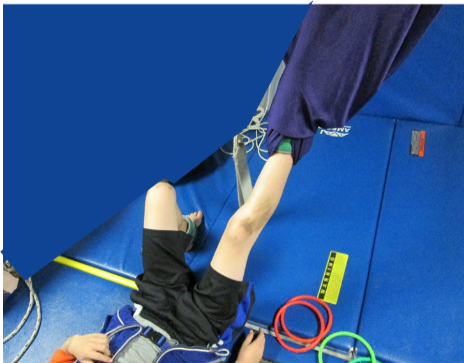
What is Vestibular Processing?
Vestibular processing may be defined as the ability to interpret and conceptualize data arising from movement of the head in space. The application of this information allows us to interpret the spatial orientation of objects around us.

Why is Vestibular Processing Important?
The ability to conceptualize the position of oneself in space affords emotional, psychological and physical safety commonly referred to as “grounded”. This means that you’re present in your body and connected with the earth, allowing you to feel centered and balanced no matter what’s going on around you.

The inability to process this data tends to result in anxiety, falls, and frequent collisions with objects in the environment.

How Does Vestibular Dysfunction Impact Children With SPD?
Because actions of the vestibular system are brought into play early in life, the system influences many other systems within the brain. Postural control, visual, auditory and arousal mechanisms are all heavily influenced by the work of the vestibular system.

This means that when the vestibular system is frail, all other systems that are dependent upon activation from the vestibular system will not function properly. The visual system, auditory system, motor systems with postural control as well as socio-emotional systems are likely to be compromised when the vestibular system does not function properly.



Comments are closed.